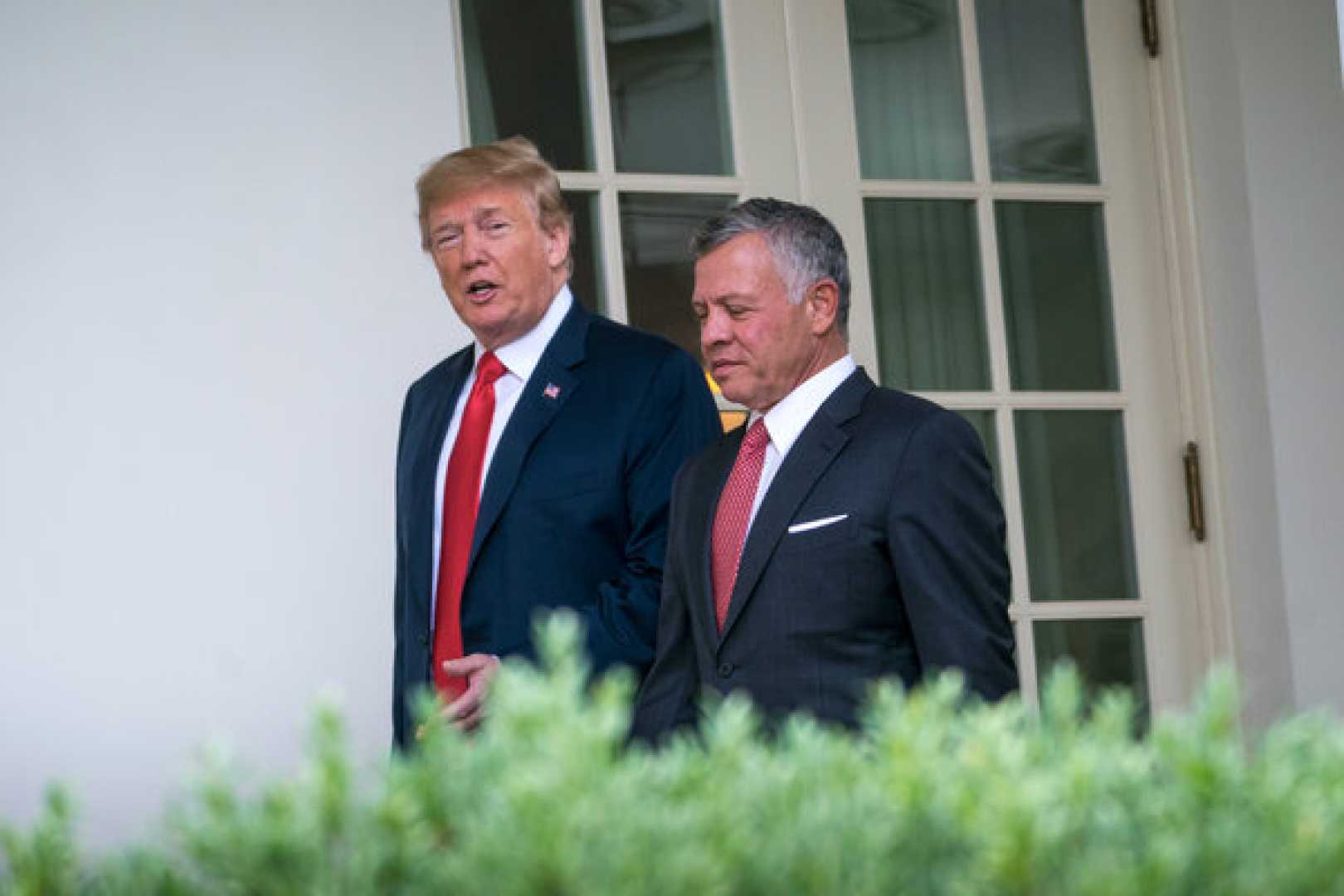Politics
Trump Pressures Jordan and Egypt to Accept Palestinian Refugees Amid Ceasefire Tensions

WASHINGTON, D.C. — President Donald Trump met with Jordan’s King Abdullah II at the White House on Tuesday, intensifying demands on Arab nations to accept Palestinian refugees as part of a controversial plan to reshape the Gaza Strip. This meeting comes amid rising tensions regarding a ceasefire agreement in Gaza, which Trump stated could collapse if Hamas does not return all hostages by Saturday.
During the meeting, Trump reiterated his aggressive stance, suggesting that withholding U.S. aid from Jordan and Egypt could be a method to persuade them to accept a portion of the refugees from Gaza. “If they don’t, I would conceivably withhold aid, yes,” Trump disclosed, hinting at the leverage the U.S. has over both nations, long-time allies receiving substantial American foreign aid.
Putin’s recent criticisms of Trump’s plans sparked rebuttals from U.S. officials. “Come to the table with your plan if you don’t like his plan,” national security adviser Mike Waltz advised, suggesting that the White House remains open to proposals contrary to Trump’s vision.
King Abdullah II and Egyptian leaders have previously rejected Trump’s proposals, voicing concerns about the destabilizing effects of absorbing large numbers of refugees. An anonymous Arab official disclosed that Jordan’s position is influenced by historical tensions and security issues, particularly concerning the integration of Palestinians.
Trump’s Gaza strategy revolves around a concept of U.S. ownership and redevelopment, with aspirations of transforming the devastated region into a luxury destination akin to the “Riviera of the Middle East.” However, it remains unclear if this initiative aligns with existing geopolitical realities as Jordan faces internal pressures from its Palestinian population.
During the talks, Trump mentioned his intent to commence building projects in Gaza aimed at enhancing living conditions for Palestinians, asserting that the relocated population would “benefit from much better housing.” However, critics argue that the proposal lacks a viable foundation given the regional complexities and the historical context of Palestinian-Jordanian relations.
Historically, Jordan has absorbed waves of Palestinian refugees, particularly following conflicts in the region. The current king, Abdullah II, is acutely aware of the geopolitical and sociocultural ramifications such proposals entail, especially given the recent rise in domestic dissent against his leadership.
While Trump displays confidence in negotiating favorable outcomes, Trump officials assert that the U.S.’s aid strategy is also in jeopardy if regional partners, like Jordan and Egypt, do not comply with his outlined vision. The administration’s discussions will continue as they seek solutions that address both U.S. interests and the local realities on the ground.












